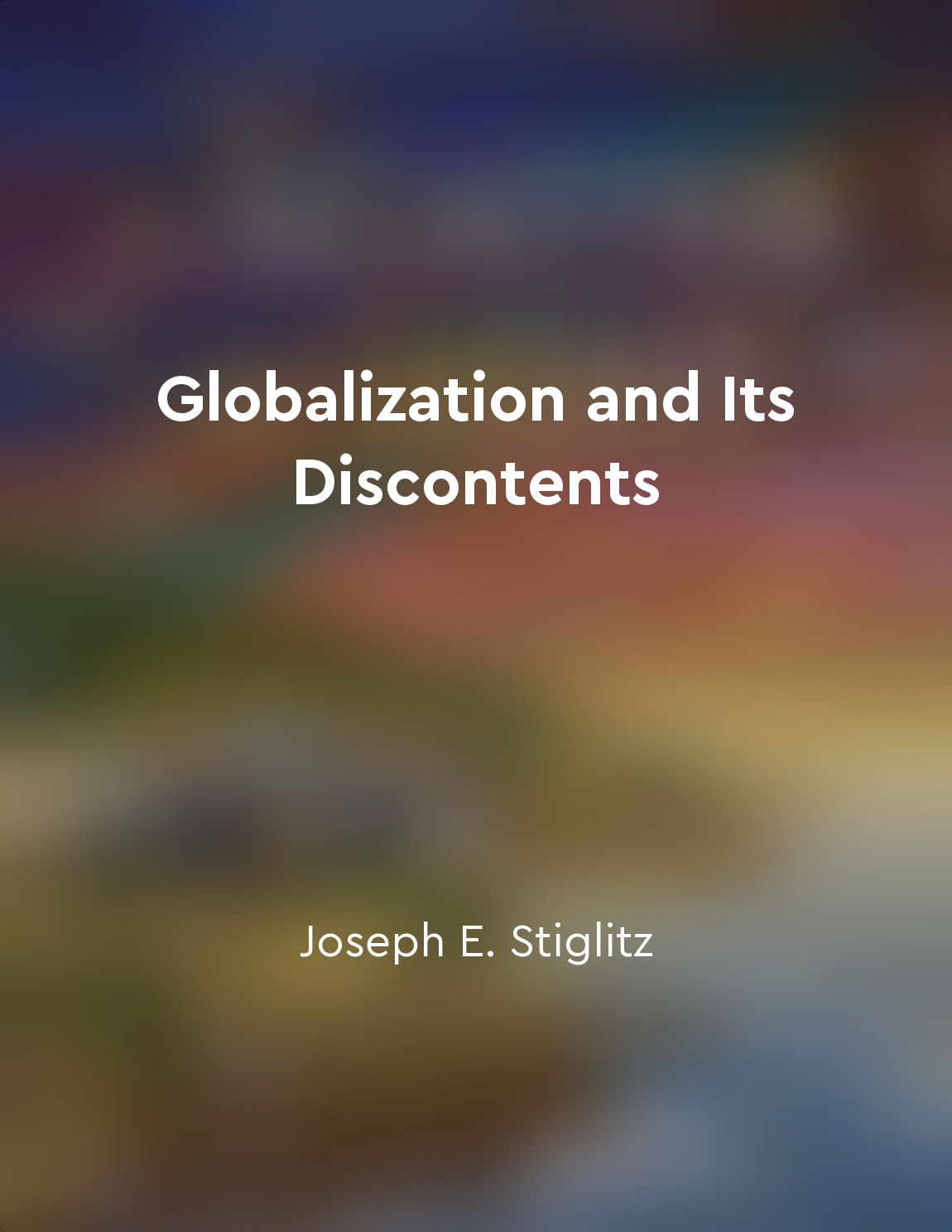There is a need for reform in global economic institutions from "summary" of Globalization and Its Discontents by Joseph E. Stiglitz
The current global economic institutions are not working as they should. They were designed in the aftermath of World War II, with the hope of preventing another global economic catastrophe. However, these institutions have become outdated and are no longer serving the needs of the global economy. There is a lack of accountability and transparency in these institutions, leading to decisions that benefit a few at the expense of the many. The International Monetary Fund (IMF) and the World Bank, for example, have been criticized for imposing one-size-fits-all policies on developing countries, without taking into account the unique circumstances of each nation. The voting power in these institutions is also skewed, with developed countries holding the majority of the power. This has led to a situation where the interests of the wealthy nations are prioritized over those of the developing countries. Furthermore, the policies promoted by these institutions have often exacerbated inequality and poverty in developing countries. For example, structural adjustment programs have led to cuts in social spending, which have disproportionately affected the most vulnerable populations. In order to address these issues, there is a need for reform in global economic institutions. This reform should focus on increasing transparency, accountability, and representation in decision-making processes. Developing countries should have a greater say in the policies that affect them, and their unique circumstances should be taken into consideration. Additionally, reform should aim to promote policies that prioritize sustainable development, reduce inequality, and protect the environment. The goal should be to create a more inclusive and equitable global economy that benefits everyone, not just a select few.- The current global economic institutions are in need of significant reform. It is essential that these institutions adapt to the changing global landscape and work towards creating a more just and sustainable economic system.
Similar Posts
Trust must be earned, not imposed
Trust is a delicate thing, not easily given or received. It is a currency that must be earned through actions, not demanded thr...

Influence of cultural values on class distinctions
Cultural values play a significant role in shaping class distinctions in society. These values are deeply ingrained in individu...
Leaders lack understanding of economic principles
In their analysis, Krugman and Krugman highlight a critical issue that has plagued leadership across various sectors - a lack o...
The Reformation helped establish inclusive institutions in Europe
The Reformation played a crucial role in fostering inclusive institutions in Europe. Before the Reformation, political power wa...
Shock therapy
The Shock Doctrine refers to a strategy that capitalizes on moments of crisis to push through radical free-market economic poli...
Financial markets are not always efficient
Financial markets are often portrayed as efficient mechanisms that quickly incorporate all available information into asset pri...
Economic hit men silence dissenting voices
In my line of work, it's imperative to ensure that dissenting voices are silenced. These voices pose a threat to the success of...


